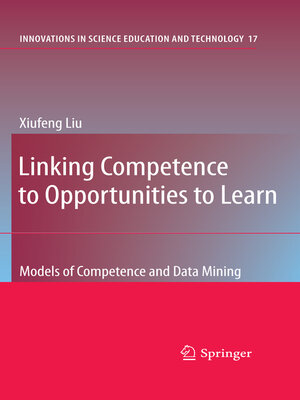Linking Competence to Opportunities to Learn
ebook ∣ Models of Competence and Data Mining · Innovations in Science Education and Technology
By Xiufeng Liu

Sign up to save your library
With an OverDrive account, you can save your favorite libraries for at-a-glance information about availability. Find out more about OverDrive accounts.
Find this title in Libby, the library reading app by OverDrive.



Search for a digital library with this title
Title found at these libraries:
| Loading... |
For many people, a high standard for student learning is desirable. This is what underlies current standard-based science education reforms around the world. As someone who was born and brought up in a less-privileged home and educated in a resource-limited school environment in a developing country, I always had to study hard to meet various standards from elementary to high school to univ- sity. My first book in English published over 10 years ago (Liu, X. [1996]. Mathematics and Science Curriculum Change in the People's Republic of China. Lewiston, NY: The Edwin Mellen Press) provided me an opportunity to examine standards (i. e. , Chinese national science teaching syllabi) from a historical and political point of view. I argued that standards are developed for particular poli- cal agendas in order to maintain the privileged position of certain groups (i. e. , urban residents) in a society at expenses of others (i. e. , rural residents). Thus, underneath standards is systematic discrimination and injustice. Since then, I have had opportunities to study the issue of standards in much more breadth and depth. This book, Linking Competence to Opportunities to Learn: Models of Competence and data mining, provides me an opportunity to examine standards from a different perspective: opportunity to learn.






